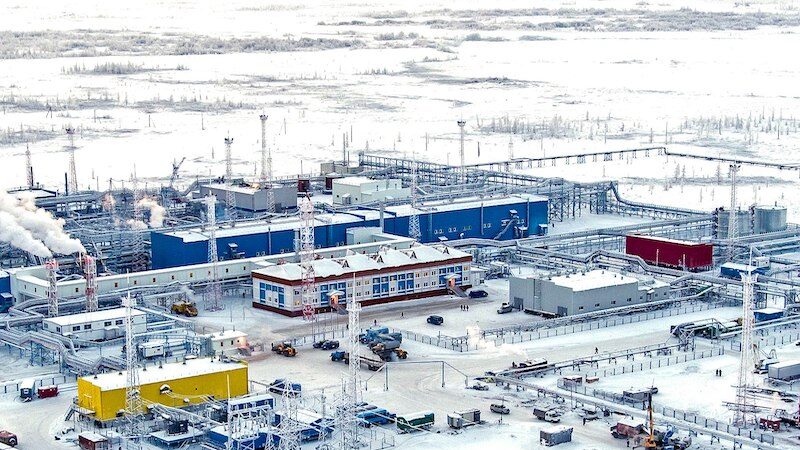Russia, Saudi Arabia and other Gulf states have urged the World Bank to keep funding fossil fuel as a way to guarantee energy access across the world, as the lender pursues green reforms.
During a meeting of the bank’s steering committee in Marrakech, Morocco, they voiced opposition to reforms which are expected to channel more money into clean energy projects.
Mohammed Aljadaan, the Saudi finance minister, said “hydrocarbons will continue to play an important role in balancing the energy mix for the foreseeable future”, calling on the World Bank to reflect “these realities” in its financing.
He added that the lender should prioritise supporting universal electricity access, which requires “tapping all energy sources”.
His calls were echoed by Bahrain’s finance minister, Sheikh Salman Al Khalifa, who intervened at the meeting on behalf of a group of countries including neighbouring United Arab Emirates and Qatar.
“All sources of energy are essential and needed for economic growth and development,” he said before going on to make the case for the “indispensable role” of fossil gas as a source of “reliable and affordable” energy during the transition process.
Gulf states are among the world’s biggest producers and exporters of fossil fuels, which contribute to the vast majority of their national incomes.
Carbon capture pitch
Both Aljadaan and Al Khalifa also urged the World Bank to boost investment in carbon capture and storage (CCS) to allow for “a wide and reliable energy mix”. Saudi Arabia is a major proponent of CCS and has a history of promoting it in international summits, including talks over the IPCC scientific reports and UN climate talks.
Countries that produce or rely on fossil fuels particularly advocate the use CCS to trap their emissions, rather than ending the use of such fuels completely. However, the technology remains expensive and unproven at large scale.
According to the IPCC’s scientists, stopping a tonne of carbon dioxide with CCS costs between $50 and $200. Replacing fossil fuels with renewables usually saves money.
The International Energy Agency recently downgraded the role of the techno-fix in its net zero scenario, saying the history of CCS “has largely been one of unmet expectations”, marked by slow progress and flat deployment.
Green agenda attacked
Another voice in favour of fossil fuels around the World Bank committee table was that of Alexey Overchuk, Russia’s deputy prime minister. In a not-so-thinly veiled attack on the lender’s new agenda, he hit out at “unbalanced” energy and climate policies.
“An accelerated ‘greening’ of the global economy without considering the social effects and economic efficiency of decarbonization measures, along with massive underinvestment in fossil fuels, undermines energy security globally,” Overchuk said.
He added that the World Bank should recognise “the potential advantages of other energy sources, including gas and nuclear”. Russia is the second world’s largest gas producer, accounting for 18% of the global gas output in 2021.
World Bank and fossil fuels
The World Bank has reduced its financial backing of fossil fuel projects over the last few years. But last year it still provided over $1 billion of direct support to oil and gas, according to research by campaigning group Oil Change International.
A separate study found the lender’s private finance arm supplied $3.7bn in trade finance to oil and gas projects in 2022. Trade finance refers to a complex set of financial instruments in which money flows through intermediaries, like commercial banks, before reaching governments and businesses.
The World Bank – along its fellow development banks – recently agreed on principles to align its activities to the goals of the Paris Agreement, which aims to limit global warming to well below 2°C and to “pursue efforts” to keep it under 1.5°C.
But analysts raised concerns over the framework which does not explicitly prohibit financing for fossil fuel activities.
Climate finance leader
The World Bank says it is the largest provider of climate finance to developing countries. In 2022, it delivered $31.7 billion for climate-related investments – 36% of its lending.
At the meeting on Thursday in Marrakech, the World Bank’s shareholders endorsed its new vision, which puts a sharper focus on climate change.
The bank has expanded its historical objective to “end poverty” by adding that this should happen “on a livable planet”.
The reason for evolving the statement is to widen the aperture through which the bank looks at its task in the future, its chief Ajay Banga said on Wednesday. “If you can’t breathe and cannot drink clean water, there is little point in eradicating poverty,” he added.
